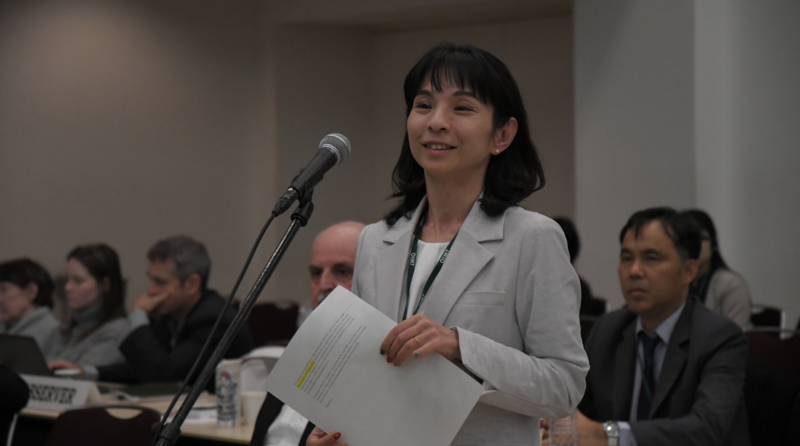ITTO forest fire projects spark learnings to inform policy
4 December 2024, Yokohama
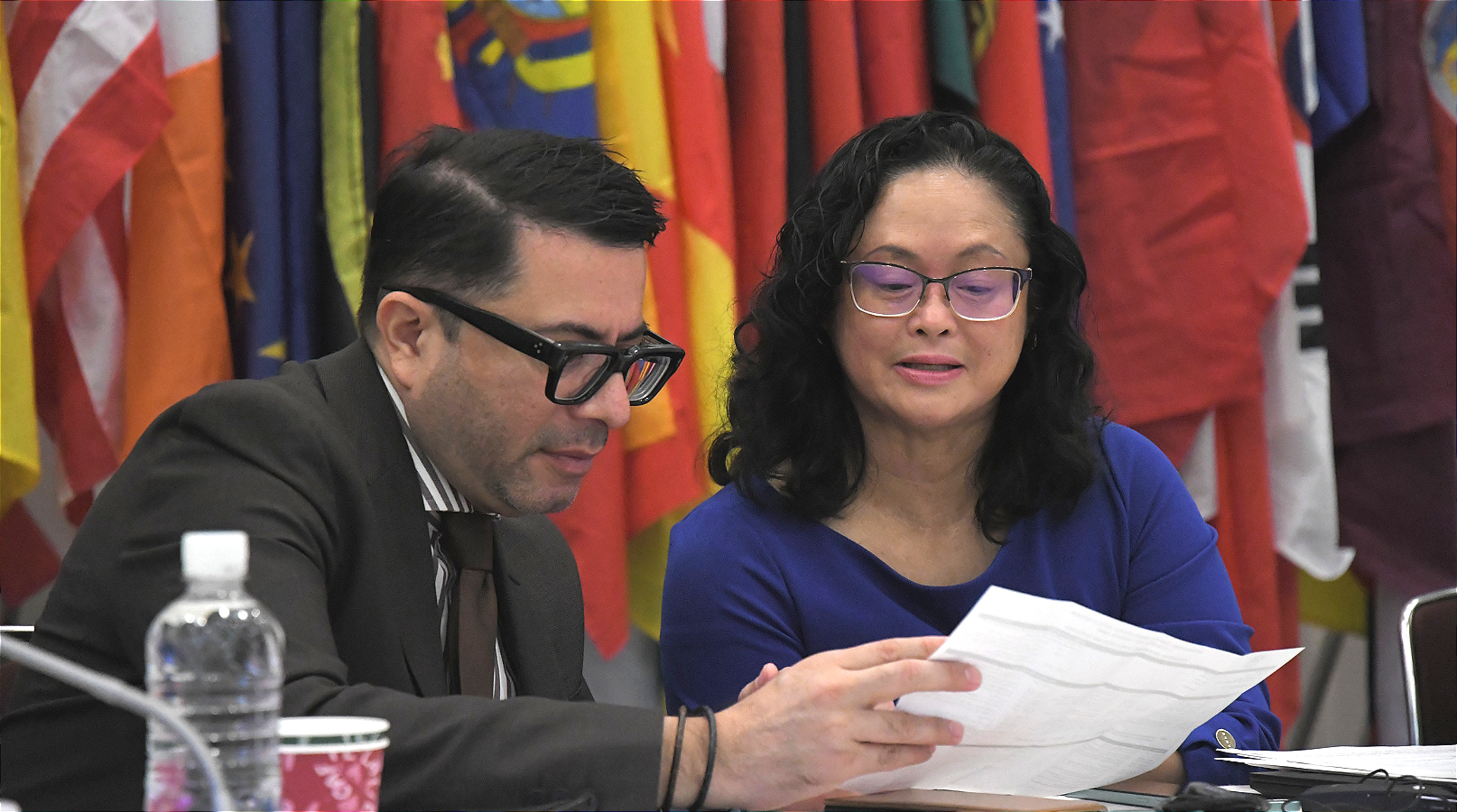
ITTO Secretariat works closely with member countries for the successful implementation of projects. Photo: P.Sarigumba/ITTO
Completed projects in Indonesia and Peru have provided valuable insights on forest fire management and will inform new guidelines on tropical forest fire management, according to an evaluation of the projects presented at the 60th session of the International Tropical Timber Council, which convened on its third day today. Both projects were funded by the Government of Japan.
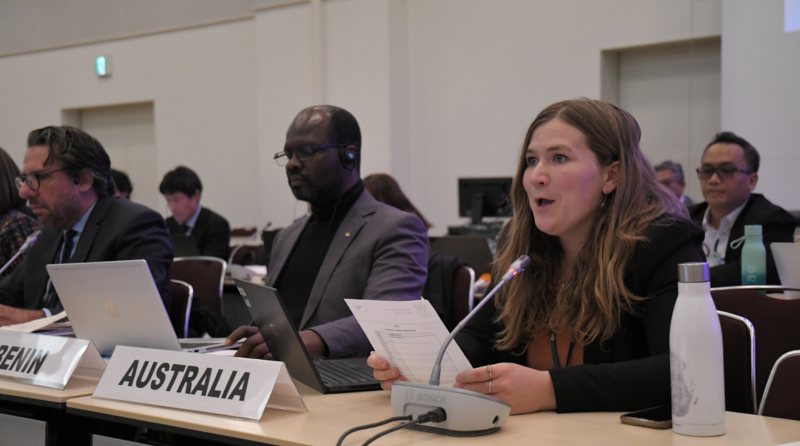
The project, “Capacity building on forest and land fire management in Indonesia”, undertook various fire-related activities in the provinces of South Sumatera, Central Kalimantan and South Kalimantan. For example, it provided training on zero-burning practices in local communities, established eight sites to demonstrate techniques to clear farming land without burning, and increased the capacity of all local fire brigades in the three provinces through training. A new monitoring and reporting system for fire prevention patrolling was developed and is now being applied countrywide.
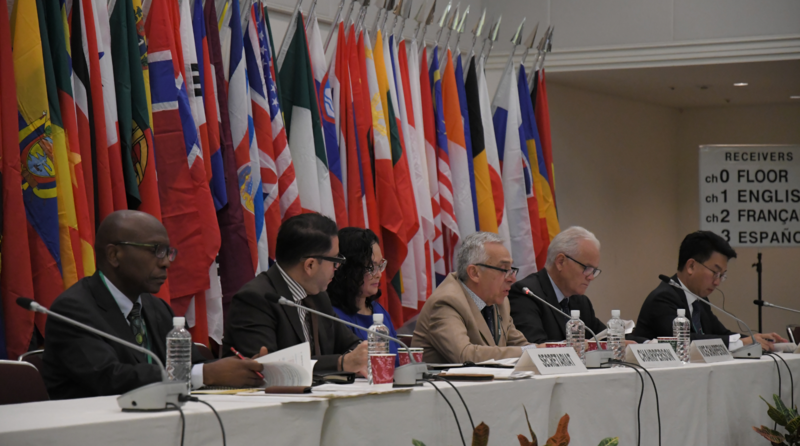
“The project has been successful in strengthening management and technical capacity of stakeholders at the three targeted provinces,” according to the ex-post evaluation report of the project presented by the consultant Lucy Amissah.
In Peru, the project, “Forest fire prevention and response in tropical forests and forest plantations in Peru”, which operated in five departments of the country, trained more than 200 members of volunteer fire brigades. It improved coordination and cooperation among national and regional authorities and local communities in work to prevent and respond to forest fires and involved local and Indigenous communities in fire prevention and response networks. The project also increased the capacity of government agencies to improve their forest fire management work and raised awareness in local communities as agents of change for fire prevention and response.
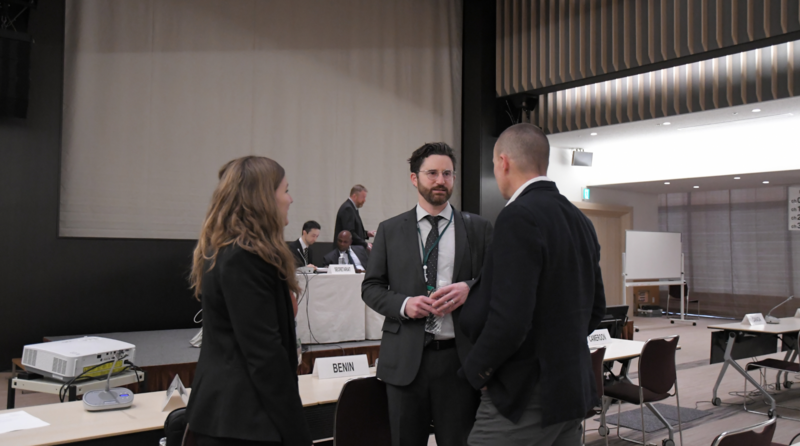
“The project has played a crucial role in supporting sustainable forest management by aiming to protect forest resources essential to local economies, ecosystem services, and biodiversity through promotion of alternatives to the use of fire,” concluded the ex-post evaluation.
The lessons learned from the projects will form part of the knowledge base for development of field-oriented guidelines on integrated tropical forest fire management, which is an ongoing activity under a joint initiative involving ITTO, the Food and Agriculture Organization of the United Nations and other members of the Collaborative Partnership on Forests to encourage the wider uptake of integrated fire management in tropical forests. The guidelines will build on the ITTO Guidelines for Fire Management in Tropical Forests, which were published in 1997.
Cooperation with other organizations
Cooperation and collaboration with other organizations was a key item on the agenda on day 3, with ITTO Executive Director Sheam Satkuru canvassing the diverse initiatives ITTO is undertaking with the member organizations of the Collaborative Partnership on Forests and other international bodies.
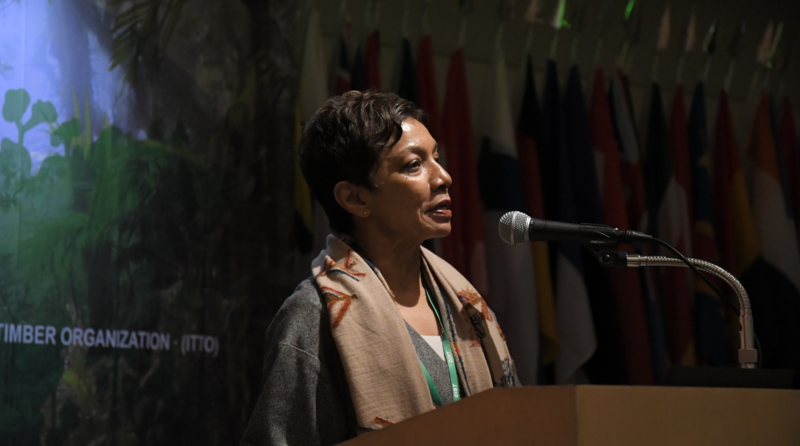
Ms Satkuru informed the Council that ITTO was officially accredited by the Green Climate Fund in March 2024. The onboarding process is underway, she said, along with the preparation of a financing submission.
Moreover, ITTO is operationalizing memoranda of understanding (MOUs) with the Convention on Biological Diversity, the Asian Forest Cooperation Organization, the Japan International Cooperation Agency, the UN Convention to Combat Desertification and the UN Forum on Forests, and a new MOU with the Institute for Global Environmental Studies should be completed soon. MOUs are also being considered with the United Nations University and the Remote Sensing Technology Center of Japan.
Ms Satkuru noted that ITTO had participated in nine educational events in Japan in 2024 as part of its communication and outreach efforts in the host country.
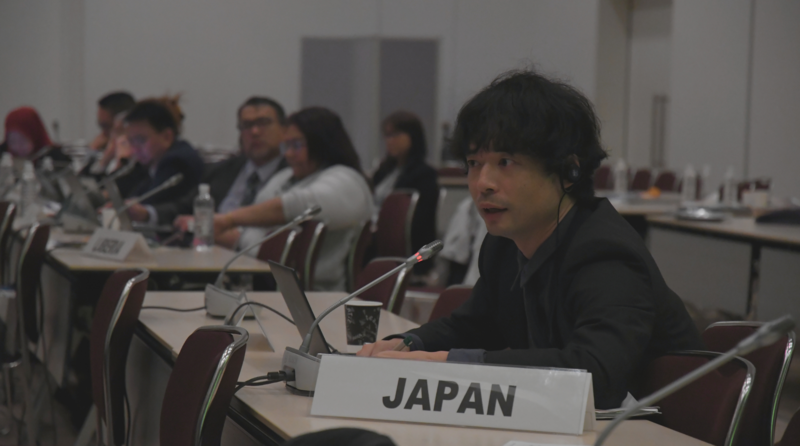
Also under this item, the Council heard interventions from Minoru Takada, Deputy Director of the United Nations Forum on Forests; Robert Nasi, Chief Operating Officer of CIFOR-ICRAF; and Aya Yamamoto, Executive Managing Director of Remote Sensing Technology Center (RESTEC) of Japan.
A new agreement, and fundraising
Consultant Alexander Knapp presented on the potential negotiation of a new International Tropical Timber Agreement (ITTA) and the Organization’s fundraising options in light of feedback received on presentations he made earlier in the Council session. He posed several options for the Council’s consideration, including for the membership and structure of the Organization. Mr Knapp also made suggestion regarding internal and external fundraising priorities to ensure that the Organization’s limited financial resources are used most efficiently.
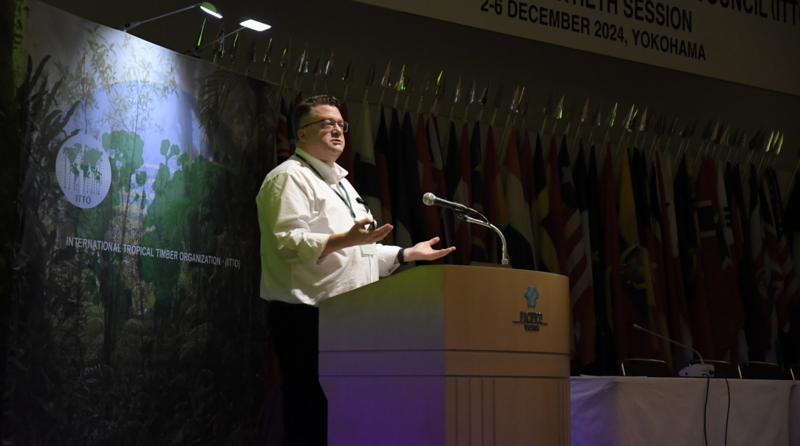
Work of the committees
The Committee on Finance and Administration completed its work on day 3 and will present its report to the Council on Friday. The Committee on Reforestation and Forest Management met to consider ongoing and completed projects and will reconvene in following days to complete its work. The Committee on Economics, Statistics and Markets and the Committee on Forest Industry convened in a joint session and will also meet again in coming days.
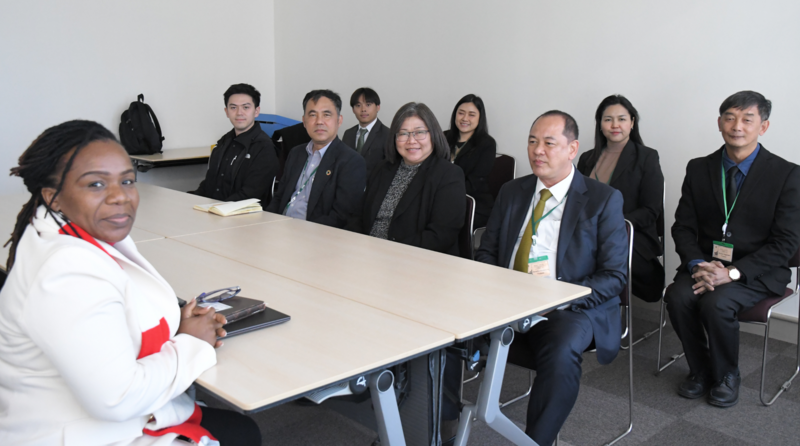
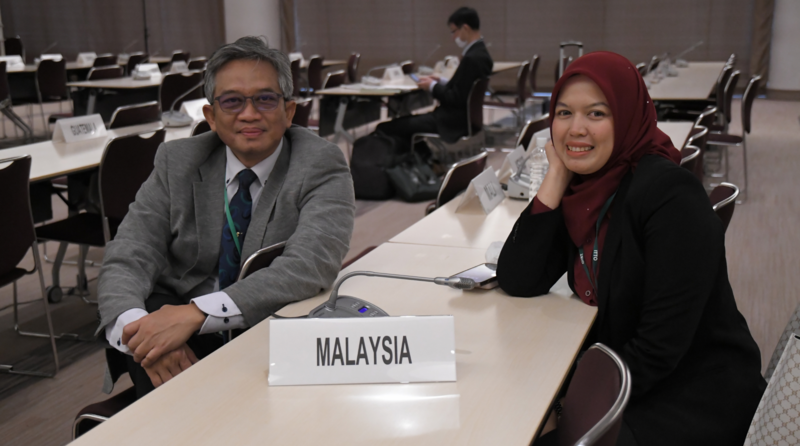
More information on the Council session, including presentations, are available here: https://www.itto.int/ittc-60/presentations.
Daily coverage of the session by IISD reporting services is available at https://enb.iisd.org/ittc60-international-tropical-timber-council.
